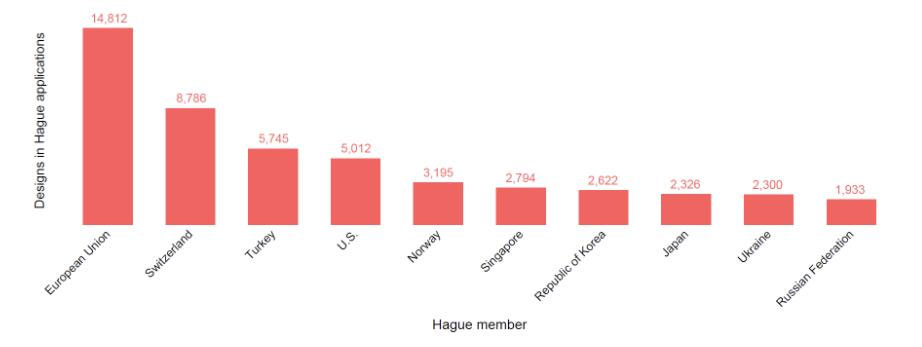Korean IP System
Hague Design System
Overview
The Hague System for the International Registration of Industrial Designs provides a practical business solution for registering up to 100 designs in 73 contracting parties covering 90 countries, through the filing of one single international application.
The Hague Agreement provides a mechanism for acquiring, maintaining and managing design rights in countries and intergovernmental organizations that are members of the Hague Union through a single international application filed with the International Bureau of the WIPO that results in a single international registration with individual effect in each of the Contracting Parties designated therein.
Thus, the Hague Agreement allows users to save time and money by enabling them to easily and swiftly acquire design protection in multiple markets, as a single international application replaces a whole series of applications which, otherwise, should have been effected with different national Offices.
The Hague System cannot be used to protect an industrial design in a country which is not party to the Hague Agreement, or which is not a member State of an intergovernmental organization party to the Hague Agreement. In order to protect a design in such a country, the applicant has no choice but to file a national (or regional) application.
International registrations are affected for an initial period of five years. They may be renewed for an additional period of five years. In respect of each designated Contracting Party, the minimum duration of protection shall be at least 15 years, subject to renewal, and up to the expiry of the total term of protection allowed by those Contracting Parties’ respective laws.
Advantages of Hague System
The Hague System for the International Registration of Industrial Designs arose from a need for simplicity and economy. In effect, it enables design owners from a Contracting Party to obtain protection for their designs with a minimum of formalities and expense. In particular, they are relieved of the need to make a separate national application in each of the Contracting Parties, in which they seek protection, thus avoiding the complications arising from procedures and languages which differ from one State to another.
The Hague System also avoids the need for constant monitoring of the deadline for renewal of a whole series of national registrations, varying from one State to the other. In addition, it avoids the need to pay a series of fees in various currencies.
In effect, under the Hague Agreement, by means of a single international application, made in one language, on payment of a single set of fees, in one currency (Swiss francs) and with one Office (the International Bureau), the applicant receives a bundle of national rights.
Moreover, by having a single international registration with effect in several Contracting Parties, the subsequent management of the international registration is considerably facilitated. For instance, a change in the name or address of the holder, or a change in ownership for only some or all of the designated Contracting Parties, can be recorded in the International Register and have effect by means of one simple procedural step carried out through the International Bureau.



